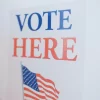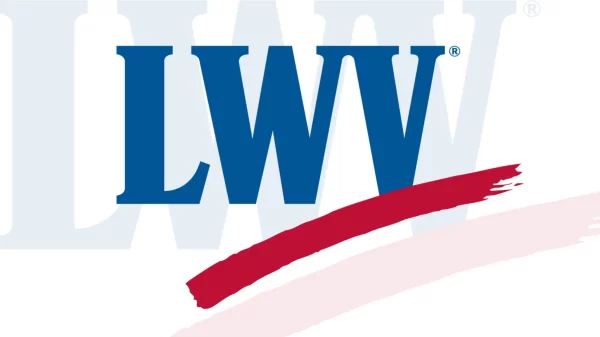|
Getting your Trinity Audio player ready...
|
On Tuesday, APR spoke with Rolland Grady, a senior political science major in the University of Alabama’s accelerated Master’s program, an ambassador for UA Vote Everywhere, and an advisory board member for the Students Learn Students Vote Coalition. As an impassioned advocate for youth involvement in politics on both the state and national levels, Grady shared her perspective on the current state of youth civic engagement in Alabama and how it might develop moving forward.
Although the 2024 General Election saw a general decrease in youth voter turnout across the country, Grady expressed optimism about the level of political engagement she sees on UA’s campus and among young Alabamians in general.
“I view it pretty positively,” Grady said. “I think a lot of people don’t expect it, but a lot of young people are looking to get engaged and are consistently looking… to stay up to date with what’s happening.”
“I think there are a lot of barriers to entry with that, especially because most of my work focuses on college students — a lot of them are working towards their degrees, they might be working as well — and looking at politics, especially state level, does take a good bit of time,” she added. “So there are some barriers to entry, but whenever we talk to students and approach them they’re always very receptive and very interested in what you say.”
“And i think that’s incredibly clear when we look at this past year when we look at the amount of student political activity that happened on our campus just in response [to the passage] of recent Alabama Senate bills,” Grady continued.
Alabama’s students have organized multiple times over the past year to protest SB129, a law passed by the Alabama State Legislature which has since prohibited public institutions like schools and colleges from funding diversity, equity and inclusion offices and from sponsoring DEI programs or any program that “advocates for a divisive concept.”
Students in Tuscaloosa have also organized in response to national and international political issues. In September, the UA College Democrats protested then-Republican presidential candidate Donald Trump’s visit to Tuscaloosa for the highly-anticipated college football matchup between Alabama and the University of Georgia. Student groups at the University also held demonstrations in May and September calling for the end of the Israeli occupation of Palestine.
In light of these various events, Grady says she truly believes that her fellow students are excited to get politically engaged. “And I’m excited to hopefully help them get engaged,” she added.
With regards to the decrease in youth turnout between 2020 and 2024, Grady was adamant that it is not necessarily a reflection of less political engagement among young people but more a reflection of the sociopolitical contexts they find themselves in.
“I think 2020 was such an interesting case, there were so many things happening that led to that increased turnout… it’s kind of hard comparing [2024] to those years,” Grady said. “But I think also what we’re seeing is a lot of apathy and misinformation.”
“When misinformation is being spread it also makes people more apathetic towards voting, because they might not think their vote even matters at that point,” Grady added. “And I think [it is important] just trying to show people that their vote does matter and trying to tie a direct impact to it… their vote can have more of an impact, like locally maybe.”
Grady then discussed ways in which youth participation in Alabama might be bolstered for future elections.
“We can look at specific ways that [institutions of higher education] can support youth voting, and I feel optimistic that a lot of them might take up some of these ideas,” Grady said. “I know one thing that UA Vote Everywhere has been trying to push for the past few years is to have Election Day off, so giving students Election Day off so that way they can make it home to go vote.”
“I think a lot of people don’t really realize how easy it is for a mistake to happen on a ballot and then students are faced with the tough choice of either not voting or having to find a way to go home,” Grady added. “I know I personally had to drive home and miss a bunch of class… to fix something on my ballot and I was not the only person I know who had to do that. So, with situations like that, I think having Election Day off could be really useful because it could help students make their voting plan and also just build this culture of civic engagement.”
APR asked Grady what she thought of two bills pre-filed for the 2025 legislative session that look to bring early voting to Alabama and how they might impact youth turnout if signed into law.
“I think it could increase young voter participation… I know a lot of my friends in Alabama really struggle to find times to go vote, especially if they don’t want to do an absentee ballot just because of issues they might have with that as seen by the fact that some absentee ballots get returned,” Grady said. “Also early voting would allow people to maybe utilize [their school’s] fall break to go home and vote and kind of be able to go vote on the weekends, so really just being able to go vote with their community, [which] is something that I think is so important and I think it would really show a dramatic increase in the youth vote.”
Lastly, Grady expressed why she feels it is so important to get young people engaged and motivated to participate in the political process.
“I think it’s very important, because when we look around at some of these huge social movements we’ve seen throughout history, a lot of people who have been doing it have been young people. I think young people in politics bring a very interesting thing to the table where they’re knowledgable and they’re passionate enough but they don’t accept what the status quo always is.. there’s all this optimism for what the world can look like,” Grady said.
“Also, for me personally, when I think about youth voting I think about a lot of the voting rights activists who died very young trying to fight for the right to vote,” she added. “Andrew Goodman, Michael Schwerner, James Chaney, who were Freedom Summer activists, all died when they were college students trying to protect the right to vote or ensure that it was given to everyone. So when we look at this history I think its so important for young people to get involved because all of this history really involves them… if you’re not voting for you, you’re voting for them and you’re voting for all of these other people who made these sacrifices before you… you get a say in how you shape the world that you want to live in.”





















































